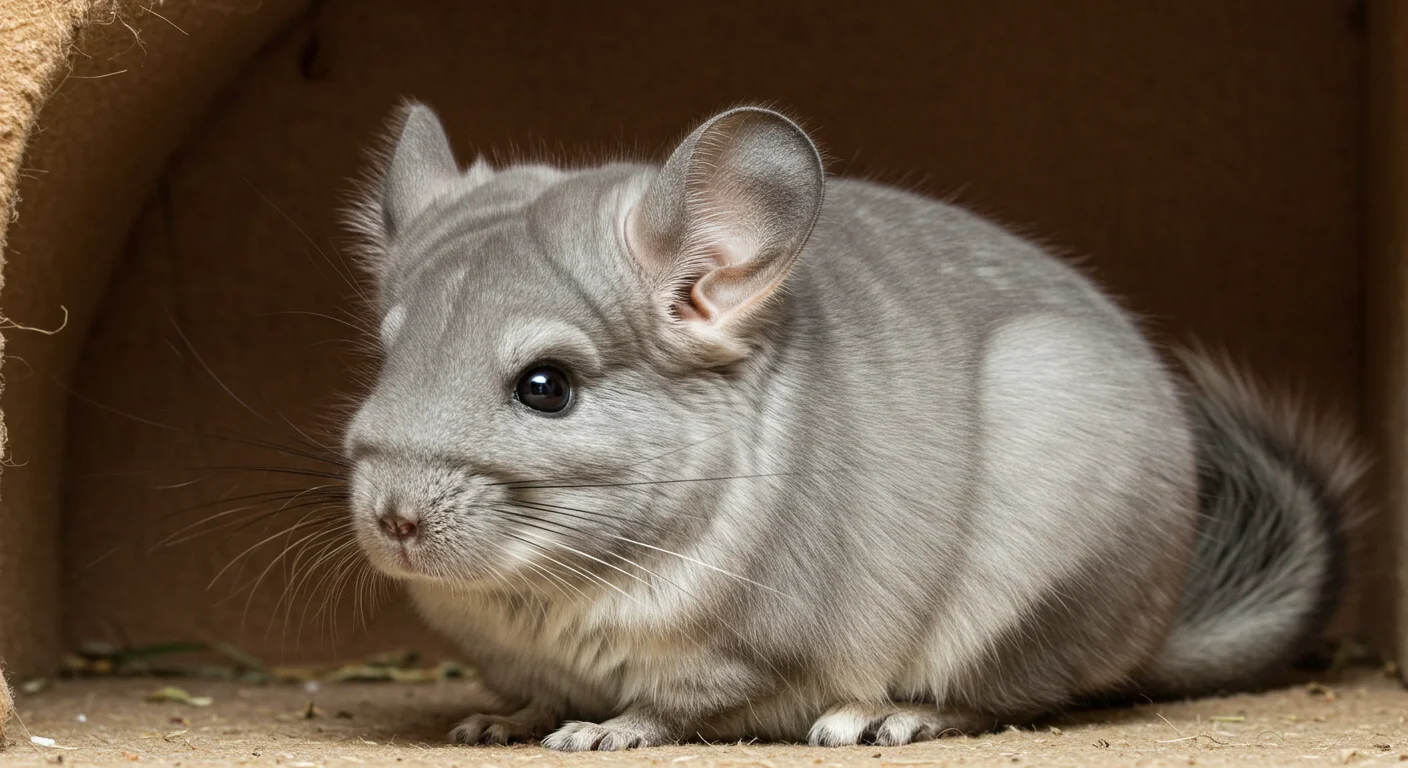 Chinchilla Behavior
Chinchilla Behavior Recognizing and Reducing Stress in Chinchillas
Chinchillas, as prey animals, are naturally attuned to potential dangers in their environment and can be prone to stress. While short-term stress is a normal survival response, chronic stress can have serious negative impacts on a chinchilla’s physical health and psychological well-being. Recognizing the signs of stress and proactively managing their environment and care routine to minimize stressors is crucial for responsible ownership.
Sensitive by Nature: Understanding Chinchilla Stress
Their prey instincts make chinchillas sensitive to:
- Loud noises
- Sudden movements
- Unfamiliar environments or objects
- Presence of perceived predators (even household pets)
- Improper handling
- Changes in routine
- Inadequate housing or resources
- Pain or illness
- Boredom or lack of stimulation
Chronic stress can suppress the immune system, lead to digestive issues (like GI stasis), contribute to behavioral problems (like fur chewing), and generally reduce their quality of life.
Common Stressors for Chinchillas
Many factors in a typical home environment can be stressful for a chinchilla:
- Noise: Loud TVs/music, vacuum cleaners, barking dogs, shouting.
- Activity: High traffic areas, being constantly disturbed during sleep hours (daytime).
- Other Pets: Presence of dogs or cats near the cage, even without direct interaction.
- Handling: Rough handling, chasing, holding too tightly, unwanted handling.
- Environment Changes: Moving cage location frequently, drastic changes in temperature or lighting.
- Cage Issues: Cage too small, lack of hiding places, incompatible cage mate.
- Travel: Car rides, vet visits (though necessary).
- Poor Health: Underlying pain or discomfort from illness.
Recognizing Signs of Stress
Stress can manifest in various ways, some subtle, some obvious:
- Behavioral:**
- Fur chewing (barbering) – own fur or cage mate’s
- Repetitive cage bar biting
- Hiding excessively or refusing to come out
- Increased vocalizations (barking, grinding teeth loudly)
- Freezing or unnatural stillness
- Pacing or frantic movement
- Aggression (nipping, spraying urine)
- Changes in appetite or water intake
- Physical (Can also indicate illness):
- Weight loss
- Changes in droppings (smaller, fewer, diarrhea)
- Dull or unkempt coat (aside from normal shedding)
- Lethargy
Observing your chinchilla’s normal behavior baseline is key to noticing abnormal chinchilla stress behaviors when they occur.

Strategies for Reducing Stress
Creating a low-stress environment involves several key areas:
1. Provide a Stable and Secure Environment
- Cage Placement: Choose a location that’s relatively quiet during the day, away from direct sunlight, drafts, and high traffic. Keep away from predator pets.
- Appropriate Cage: Ensure the cage is large enough, escape-proof, and has solid flooring/ledges.
- Hideouts: Provide at least one secure hide house per chinchilla so they can retreat when feeling insecure.
- Consistent Routine: Stick to regular times for feeding, cleaning, playtime, and dust baths as much as possible.
- Temperature Control: Maintain a cool, stable temperature (60-70°F / 15-21°C).
2. Gentle and Minimal Handling
- Approach Calmly: Move slowly and speak softly around the cage.
- Let Them Choose: Allow the chinchilla to come to you rather than chasing or grabbing.
- Supportive Hold: If picking up, support their body fully and hold them securely but gently against your body.
- Short Sessions: Keep handling brief, especially initially, and always end on a positive note before they show signs of wanting down.
- Respect Boundaries: If a chinchilla clearly doesn’t enjoy handling, limit it to necessary health checks.
3. Enrichment and Boredom Reduction
- Chew Toys: Offer a constant rotation of various safe chew toys (wood, pumice, loofah).
- Ledges & Levels: Provide ample opportunity for climbing and jumping in the cage.
- Safe Playtime: Offer regular supervised playtime outside the cage in a chinchilla-proofed area.
- Foraging Opportunities: Hide food or provide puzzle toys to engage their minds.
Addressing chinchilla boredom prevention techniques is crucial for reducing stress.

4. Maintain Good Health and Diet
- Proper Nutrition: A balanced diet supports overall well-being.
- Regular Vet Checks: Early detection and treatment of illness prevent pain-related stress.
- Monitor Weight/Droppings: Keep track of health indicators.
5. Monitoring and Prompt Response
Pay close attention to your chinchilla’s normal behavior. If you notice persistent signs of stress, try to identify and remove the potential stressor. If signs persist or are severe, consult an exotic veterinarian to rule out underlying medical causes.
By understanding what causes stress in chinchillas and actively working to create a safe, stimulating, and predictable environment, you can significantly improve their quality of life and help them feel secure and content in their home.








